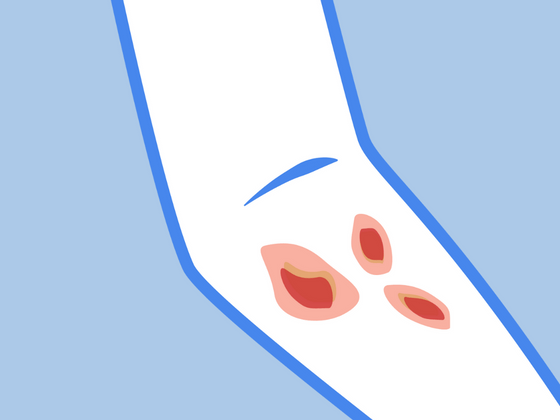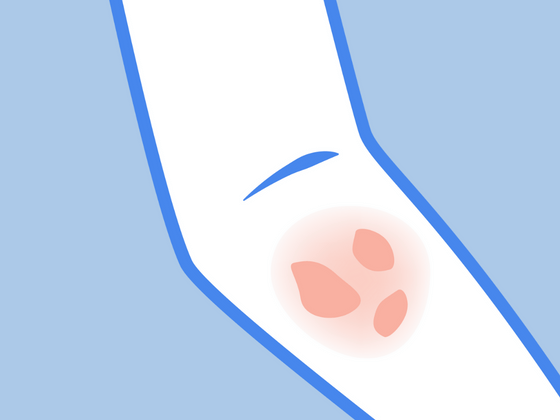Can You Get Eczema From Cats?
There's no doubt about it - pets are a part of the family. But for people with eczema, life with your furry friend might be far from domestic bliss.
For many reasons, spending time with cats and dogs can aggravate sensitive skin, triggering full-blown eczema flare-ups and setting off a range of allergic reactions.
If this sounds familiar, don't fret! Your journey of pet ownership might still be harmonious yet. Throughout this blog, we'll explore everything you need to know about:
-
Why cats can trigger eczema flares
-
The most common eczema symptoms to look out for
-
How to prevent and treat pet allergies
Read on to learn how pet dander could exasperate your eczema symptoms and how to manage the potential risks.
Pet Allergies And Eczema: What's The Link?
Pet ownership comes with so many benefits. Studies* have shown that even petting an animal can reduce your anxiety, calm your heart rate, and help you feel more present and connected.
If you or your child has eczema, however, there are certain risk factors to consider when making an informed choice about whether or not to bring a cat into your home.
Why Do Cats Trigger Eczema Flares?
Atopic dermatitis (otherwise known as eczema) causes an impaired skin barrier and imbalanced skin microbiome, lessening the protective effect of your skin.
Due to this, people with eczema are often more sensitive to environmental irritants and allergens, such as the proteins found in pet dander (flakes of dead skin cells), fur, pet saliva, and urine. One of the most common culprits of a pet allergy to cats is a protein called Fel d 1, which is secreted through their skin and saliva, even in the case of hairless cats.
An individual might also be allergic to substances carried by pet dander rather than the pet itself, such as dust mites, mold, or pollen.
For many, pet allergies show up alongside eczema as part of the 'atopic triad.' This phenomenon describes how people with eczema may also develop asthma and allergies, such as food allergies, a pet allergy, and hay fever, leading to various skin and respiratory symptoms.
Eczema Symptoms
Depending on environmental and genetic factors, eczema tends to manifest slightly differently for every individual. Having said this, however, there are a few crucial symptoms to look out for, including:
-
Dry, scaly skin patches
-
Intense itching
-
Skin flaking or cracking
-
Redness
-
Inflammation
-
Skin feels tight, sore, or stinging to touch
If your pet allergy has triggered your eczema flare-up, you may also notice some further allergic reactions, such as:
-
Runny nose
-
Itchy eyes
-
Restricted breathing (as in asthma)
If you or your loved one ever experience difficulty breathing after handling a pet, we urge you to contact emergency services to seek medical support.
How To Prevent Pet Allergies
If you're ready and eager to adopt a furry friend but worried about the potential impact on your health, know that there are still many factors within your control that can help to prevent an allergic reaction to cats.
Cleaning and Hygiene
One of the biggest triggers for atopic dermatitis is pet dander, so to reduce the risk of eczema flares, be sure to sweep your home regularly and clean thoroughly to gather up any dust mites.
The same goes for your body and clothes too. After petting your animal, wash your hands with a gentle, natural eczema soap such as the Emily Skin Soothers - Soap for Eczema with Chinese Herbs.
Look Into Hypoallergenic Breeds
Eczema flares shouldn't have to be the end of your pet ownership dreams. Hypoallergenic cat and dog breeds may offer you more choices, typically breeds with a different consistency of fur or less fur.
Despite this, however, all cats will always produce some level of Fel d 1 allergen*, even if they're totally hairless. This means that while so-called hypoallergenic cats might be easier to tolerate, they could still trigger eczema symptoms.
Sometimes, it might be safer to consider other animals in your search for a new pet, such as hamsters or guinea pigs (which are less likely to shed dander all over your home) or fish.
Introduce A Pet Into Your Family Early
Particularly for new or expecting parents, deciding whether or not to bring a pet into the home can be daunting - What if my child is allergic? Will the pet 'bring on' eczema symptoms for the first time?
Many studies have found that early life exposure to pets at an early age can have a protective effect on the development of eczema and other allergic diseases.
Indeed, cat-sensitized children may be at lower risk of developing connected health conditions such as allergic rhinitis and asthma.
Having said this, if your cat seems to be worsening your child's eczema, we'd recommend trying out some of the following tips along with using appropriate eczema cream for babies:
-
Limit your child's contact with your pet's litter, bedding, and toys.
-
Restrict your pet from furniture, family vehicles, and your child's bedroom.
-
Encourage regular handwashing and changing clothes after handling the pet.
-
Please consult your child's doctor to adapt their eczema treatment plan.
Treating Eczema Symptoms
While prevention methods are all well and good, there might be times in life when an eczema flare or pet allergy reaction is unavoidable.
Thankfully, there are many treatment options including eczema cream to help you soothe irritated skin and ease your allergy symptoms. To help you get started, we're going to share a couple of ideas:
Use A Soothing Moisturiser
Often, allergic reactions lead to skin inflammation and itching. If this is true for you, we'd encourage you to moisturize your skin generously and frequently.
This will help to repair your weakened skin barrier by boosting hydration, helping your skin to serve as a more effective protective barrier against irritants and allergens such as pet dander. Consider using a beef tallow cream for intensive moisturizing.
This Grass Fed Tallow Balm is a great heavy-duty option for severe eczema flare-ups. The unscented balm was formulated for those with the most sensitive skin conditions. Lavender essential oil also offers a natural antibiotic and antiseptic, promoting healing and preventing scarring.
Wear Hypoallergenic Clothing
When you're in the midst of allergy symptoms, wearing itchy, tight, synthetic fabrics will likely worsen eczema symptoms over time.
Instead, opt for breathable, soft clothing from 100% hypoallergenic fibers.
For example, these Organic Cotton Lounge Pants for women and men are great for wearing around your home, sleeping, or exercising more comfortably. Made from 100% organic cotton with no elastic, spandex, or latex, these pants also feature an adjustable drawstring for your perfect fit.
Take Control of Your Pet Allergies Today
Follow these tips to help you understand how and why your cat might trigger your eczema flare-ups, and take proactive steps to protect and heal your skin today.
Sources:
*https://time.com/collection/guide-to-happiness/4728315/science-says-pet-good-for-mental-health/
*https://www.purina.co.uk/articles/cats/health/skin-fur-ears/myth-hypoallergenic-cats








